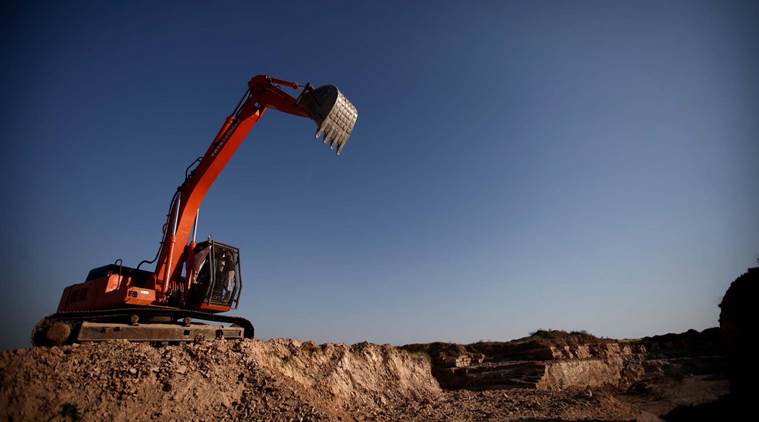Stay updated with the latest - Click here to follow us on Instagram
Judgment on illegal mining: Three states concerned over ‘pandemic effects’ of SC order
The Supreme Court had on August 2 last year imposed a penalty on 152 iron ore and manganese lessees in Odisha for illegal mining. The states voiced concerns over the effect of the SC ruling on their state’s mining operations.
 The Supreme Court had on August 2 last year imposed a penalty on 152 iron ore and manganese lessees in Odisha for illegal mining.(Express Photo/Oinam Anand/File)
The Supreme Court had on August 2 last year imposed a penalty on 152 iron ore and manganese lessees in Odisha for illegal mining.(Express Photo/Oinam Anand/File)
Three state governments — Andhra Pradesh, Telangana and Karnataka — have expressed their concerns to the Centre regarding the “pandemic effects” of the judgment passed by the Supreme Court on August 2, 2017, wherein it was stated that the illegal miners who did mining without requisite green clearances would need to pay an amount equivalent to 100 per cent of the value of the minerals extracted.
These concerns were expressed by the ministers and officials of the aforementioned three state governments in a meeting with Union mines minister Narendra Singh Tomar in Goa on January 19. Government officials of 16 mineral-rich states were present at this meeting.
The Supreme Court had on August 2 last year imposed a penalty on 152 iron ore and manganese lessees in Odisha for illegal mining. These mines were found to have conducted operations without forest and environment clearances between 2000 and 2011, sometimes even beyond the permitted area.
According to minutes of the meeting, Suajaya Krishna Ranga Rao, Minister of Mines, Andhra Pradesh, sought “necessary action to obviate its pandemic effects on the mining and allied sectors of the economy”. Echoing his sentiments, Rajendra Kataria, principal secretary, Karnataka, stated that the “Supreme Court judgment may have far reaching implications for the mining sector”. B R V Sushil Kumar, director of mines and geology, Telangana, also raised his concerns on the implication of this judgment.
The states also voiced concerns over the effect of the SC ruling on their state’s mining operations. The Supreme Court stated in its judgement last year: “Any mining activity carried on after January 7, 1998, without an FC (Forest Clearance) amounts to illegal or unlawful mining in terms of the provisions of Section 21(5) of Mines and Minerals (Development and Regulation) Act — also known as MMDR Act — attracting 100 per cent recovery of the price of the extracted mineral that is disposed of.”
Any iron ore or manganese ore extracted contrary to Environment Impact Assessment (EIA) notification, 1994 or EIA, 2006, would constitute illegal or unlawful mining and compensation at 100 per cent of the price of the mineral should be recovered from 2000-2001 onwards in terms of Section 21(5) of the MMDR Act, the Supreme Court stated.
The SC added that all mining projects, which have a lease area of 5 hectares or more, are required to have an EC (environment clearance) with effect from September 14, 2006. “The extraction of any mineral in such a case without an EC would amount to illegal or unlawful mining attracting the provisions of Section 21(5) of the MMDR Act,” the SC said.
The SC also clarified that in the event of any overlap, that is, illegal or unlawful mining without an FC or without an EC or without both would attract only 100 per cent compensation and not 200 per cent compensation. In other words, only one set of compensation would be payable by the mining lease holder.
According to an Odisha government official, the central government always takes its time in granting green clearances to the mining companies. “The mining lease owners, who did not receive their requisite green clearances on time, used to start their mining operations and then wait for the clearances. However, as SC has directed us, we will make these lease owners pay all the penalty soon” the official added.
The issue of delay in grant of green clearances was also mentioned in the meeting. Kataria sought the intervention of Centre in regard to “issues related to EC and FC which is leading to stalling of auction process”. Prafulla Kumar Malik, minister of mines, Odisha, stated at the meeting that there is a need to speedily grant the green clearances to the mineral blocks that have been awarded in auction during last two years.






